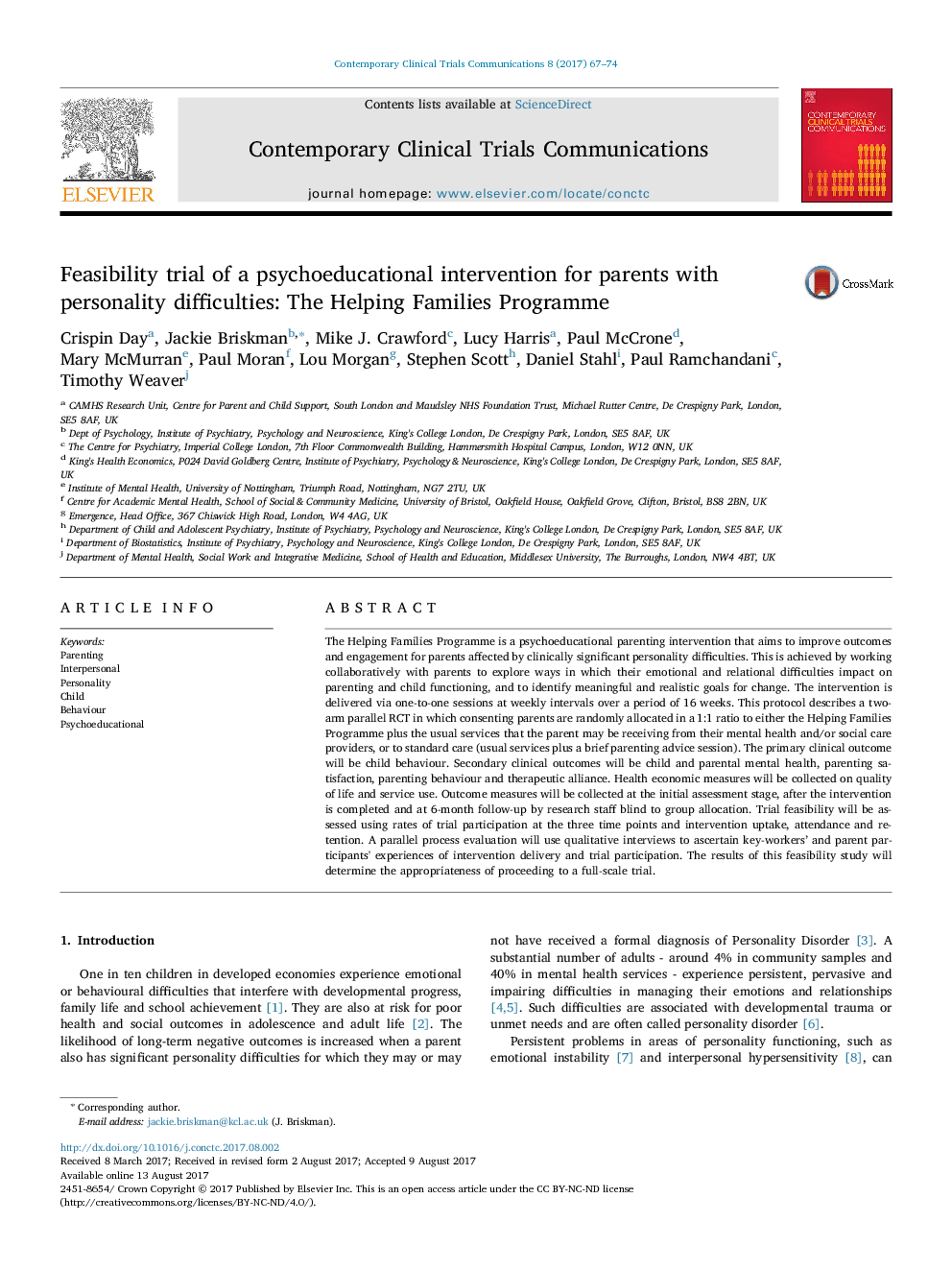ترجمه فارسی عنوان مقاله
محاکمه امکان سنجی مداخله روانشناختی برای والدین با مشکلات شخصیتی: برنامه کمک به خانواده ها
عنوان انگلیسی
Feasibility trial of a psychoeducational intervention for parents with personality difficulties: The Helping Families Programme
| کد مقاله | سال انتشار | تعداد صفحات مقاله انگلیسی |
|---|---|---|
| 127279 | 2017 | 8 صفحه PDF |
منبع

Publisher : Elsevier - Science Direct (الزویر - ساینس دایرکت)
Journal : Contemporary Clinical Trials Communications, Volume 8, December 2017, Pages 67-74
ترجمه کلمات کلیدی
والدین، درون فردی، شخصیت، کودک، رفتار - اخلاق، روانشناسی،
کلمات کلیدی انگلیسی
Parenting; Interpersonal; Personality; Child; Behaviour; Psychoeducational;

